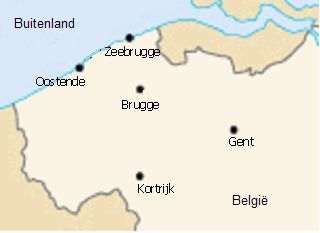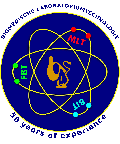
Pages
KULAK, Laboratorium voor trombose onderzoek
In deze studie worden verschillende strategieën voor gentherapie voor VWD onderzocht: (i) het verder uitbouwen van de reeds ontwikkelde /ex vivo /gentherapie-strategie via lentivirale transductie van endotheliale precursorcellen in diermodellen, (ii) een uitbreiding hiervan naar de /ex vivo /transductie van CD34+ hematopoëtische stamcellen, (iii) het onderzoeken van VWF-expressie door levercellen na hydrodynamische VWF-injectie van muizen en (iv) een rechtstreekse /in vivo /lentivirale virusbehandeling. Voor deze (dier)experimenten beschikken we over een VWF-knockout muizenkolonie. Voor elke gevolgde strategie zal nagegaan worden in welke mate het transgeen geproduceerd VWF kan zorgen voor een verbetering van het bloedingsprobleem bij deze muizen. De experimenten zullen dan ook bestaan uit het analyseren van het geproduceerde VWF, zowel kwantitatief (VWF:Ag ELISA) als kwantitatief (binding van VWF bloedplaatjes (VWF:RCo ELISA), binding van VWF aan collageen (VWF:CBA ELISA), binding van VWF aan de anti-hemofilie factor VIII (FVIII-bindingsELISA), multimeeranalyse. Verdere technieken die ook gebruikt zullen worden zijn immunologische kleuringen en fluorescentiemicroscopie, isolatie en kweek van precursor- en stamcellen, flow-cytometrie, productie van plasmide-DNA en viruspartikels, maar ook dierexperimenten zoals het meten van de bloedingstijd en het uitvoeren van een trombosemodel. Afhankelijk van de fase waarin het onderzoek zich bevindt op het moment van de stage, zal de student deelnemen aan de lopende experimenten.
- Phage display technology
- chromatografie
- SDS-PAGE en Western Blotting
- ELISA
- Microscopie
- Optimalizatie panningsprocedure op Monolith kolom Op de molonith kolom wordt vWF covalent gebonden, vervolgens wordt een C6 faag bibliothheek op de kolom gelopen. Bindende fagen ( met affiniteit voor vWF) worden geëlueerd en geïnfecteerd in E. coli cellen. Deze cyclus wordt 2-3 herhaald totdat we specifieke fagen bekomen die binden aan vWF. De faagkolonies worden verder gekarakteriseerd : peptidesequentie, affiniteit voor vWF,…
- Monolith affiniteitskolom één of meerdere geselecteerde faagkolonies worden covanlent gebonden op de monolith kolom. De opzuivering van vWF uit plasma, bloed wordt geoptimaliseerd. Het bekomen vWF wordt dan vervolgens gekarakteriseerd.
The purpose of this study is to determine if it is possible to evaluate the binding between an antigen and antibody using fiber optic surface plasmon resonance (FO-SPR).
The method used for analyzing the binding between an antigen and antibody is FO-SPR. The FO-SPR device uses an optical dip fiber that functions as a mass sensitive sensor. For this research a fixed setup was used in which the antigen (a biotinylated peptide) is immobilized to the optical fiber surface. After functionalization, the sensor can be used to dip in an antibody containing solution. In this project 3 monoclonal antibody clones were used. The association and dissociation between the antigen and antibody was be measured in real-time. The data acquired by the FO-SPR device were then analyzed through non linear curve fitting to provide information on the binding kinetics (kon, koff and KD). In addition to experiments performed during this project, an additional dataset was used to analyze in parallel.
Multiple association-dissociation sensorgams were recorded for all clones in independent experiments. Non-linear regression allowed determine kinetic binding parameters. Two clones showed nanomolar binding affinities. Of note, substantial spreading in the kinetic parameters was documented between experiments.
This study demonstrates that it is possible to evaluate the binding of an antigen and antibody using FO-SPR. Future work will have to address the observed reproducibility issues. Therefore, another antigen-antibody pair will be used and the kinetic parameters obtained through the FO-SPR system will be need to benchmarked.
Address
|
Etienne Sabbelaan 53
8500 Kortrijk
056/246019 Belgium |
Contacts
|
Traineeship supervisor
Prof. Karen Vanhoorelbeke
056/246019 karen.vanhoorelbeke@kuleuven-kortrijk.be |
|
Traineeship supervisor
Prof. Hans Deckmyn
056/246422 hans.deckmyn@kuleuven-kortrijk.be |
|
Traineeship supervisor
Wim Maes
|
|
Traineeship supervisor
Patricia de Vos
|
|
Traineeship supervisor
Elien De Cock
|
|
|

